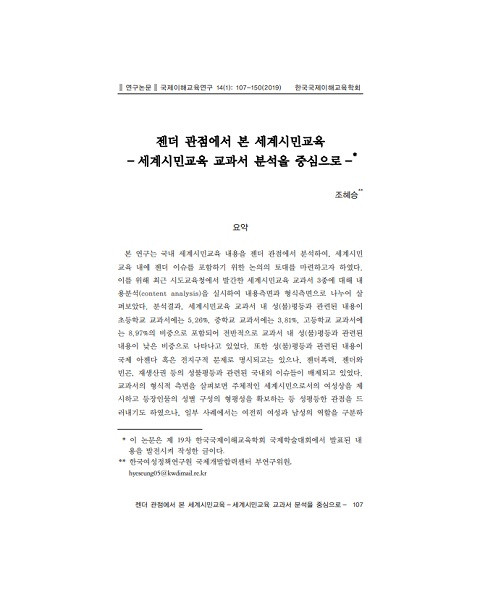
GCED Basic Search Form
Quick Search
Usted está aquí
Resources

The purpose of this study is to explore the contents of global citizenship education(GCE) from a gender perspective, and to lay the theoretical foundation to integrate gender issues into GCE. To this end, this research analyzes GCE textbooks published by four Metropolitan City Offices of Education employing content analysis. As results, GCE textbooks rarely include contents related to gender (in)equality by representing 5.26%, 3.81%, and 8.97% of the textbooks of elementary, middle and high school respectively. In terms of topics, although a word of gender (in)equality is mentioned as an international agenda or a global problems in textbooks, the specific concept of it or various worldwide gender inequalities issues such as gender-based violence, women in poverty, reproductive rights were excluded. In terms of format aspects of the textbooks, the textbooks present gender perspective by describing woman as an independent global citizen, and by ensuring the equality of gender composition of characters. In some cases, however, the roles of women and men in textbooks are still divided, and gender stereotype was recognized through sex=segregated activities. Based on these results, this research argues that it is required to expand the contents of GCE by including the importance of gender equality and global structural gender inequality problems, and that it is necessary to review the discourse and practice of GCE in Korea from a gender perspective.
